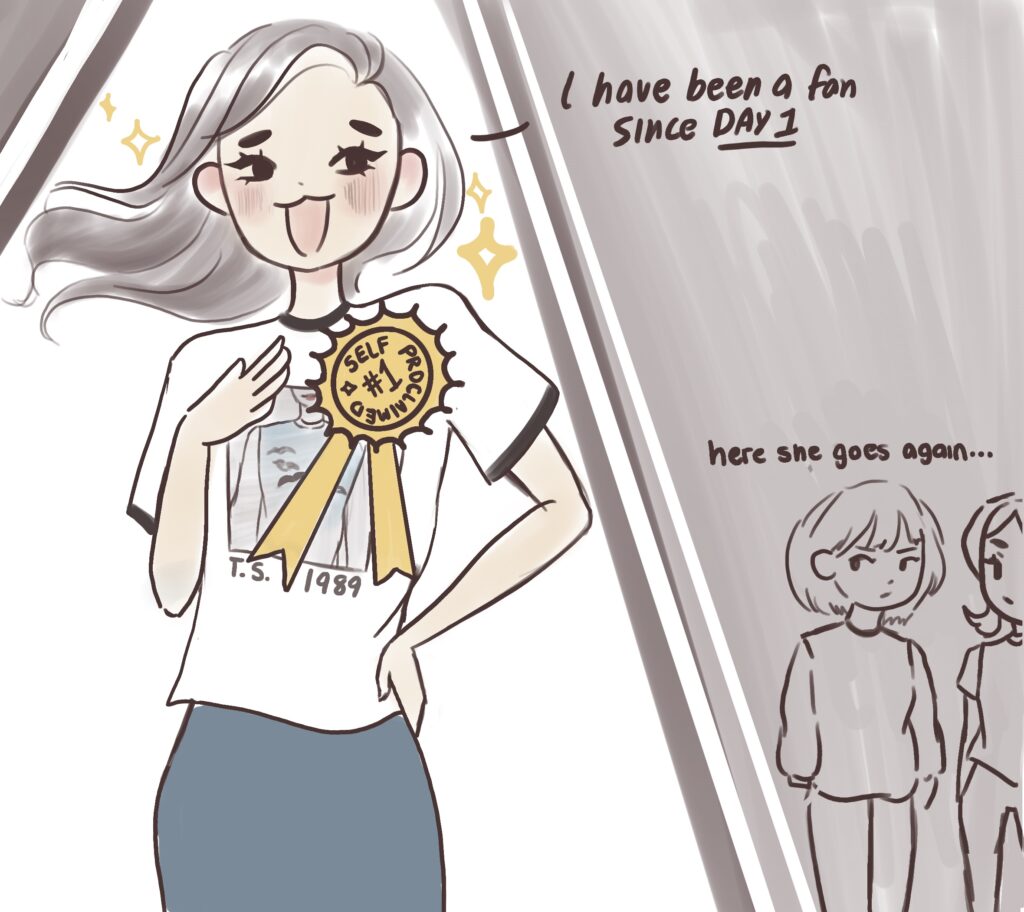
Allyson Chan
There’s no denying it: online fan bases play a major role in internet culture, manifesting themselves in several ways. Fandoms, a group of enthusiastic fans, are the most accessible yet flawed source for new members of a community to join.
Recent showings of fandoms in public and online have people around the world shaking their heads at the extremity of ‘fan behavior,’ or the actions fans perform when trying to get the attention of and or show their appreciation for a certain celebrity. While not all fan behavior is negative, there are instances where these actions push beyond the boundaries of what should be acceptable. Oftentimes, it seems as if consequences don’t apply to fans. The lack of accountability for their actions because it’s “fan behavior” continues to enable toxic behavior.
Fanbases and communities typically form online, where anonymity gives people freedom to act in toxic ways undeterred. It’s easy to discover long threads where fans antagonize others for voicing an opinion for or against an artist. People have been doxxed by hardcore fans for giving constructive criticism to popular figures. The normalization of cyberbullying in and out of fandoms is a rising concern among many communities.
Fans have also brought their toxic, parasocial behaviour into the real world. “Swifties,” Taylor Swift’s fans, are notorious for crowding places or events Swift is found at, such as crowding producer Jack Antonoff’s wedding.
Also, sport fans have a reputation for their intense emotions when their favorite sport team wins or suffers defeat. After the Seattle Seahawks won their first superbowl, 3,000 Seattlietes joined the celebration, taking over intersections, smashing champagne bottles and lighting small bonfires.
“The extreme contrast between publicly acceptable behavior and fan behavior is enormous”
With public filming and public stunts increasing due to rising social media use, it is important to start defining what is socially acceptable for fans in public.
Another seemingly ignored issue is the elitist mindset of being the ‘best’ or ‘truest’ fan. This mindset has people forcing sets of expectations new or current fans must meet in order to be considered ‘real’ fans. An example is the “name three songs” phenomenon, where supposedly dedicated fans ask newcomers to name three songs from an artist to gauge whether a person is a “real fan.” If the person fails to name three songs, it indicates that they can’t be a “real true fan.” Additionally, if the fan responds with songs that are considered more ‘mainstream,’ they are often shamed and discredited for not knowing the ‘deeper’ songs and made to feel as though their liking of the artist is lesser. These ridiculous prerequisites need to be eliminated, the arts are for all eyes and ears, not a selective group. The enjoyment of arts has turned into a competition to know and do the most for an artist. Everyone should be able to love and appreciate music and art without shame, whether they’re a casual fan or a die hard listener.
Fanbases have been a breeding ground for toxicity. However despite their shortcomings, fanbases do not need to be terminated, they need to be reformed. Fans and fanbases are not inherently bad due to the community they bring.
“People can be fans in healthy and positive ways, but this pressure-based culture to be a superfan encourages people down the wrong path”
When we are able to remove the intense pressure, I believe arts and music can be appreciated as truly they should be. Beautiful spectacles for all ears and eyes to grow fond of.



